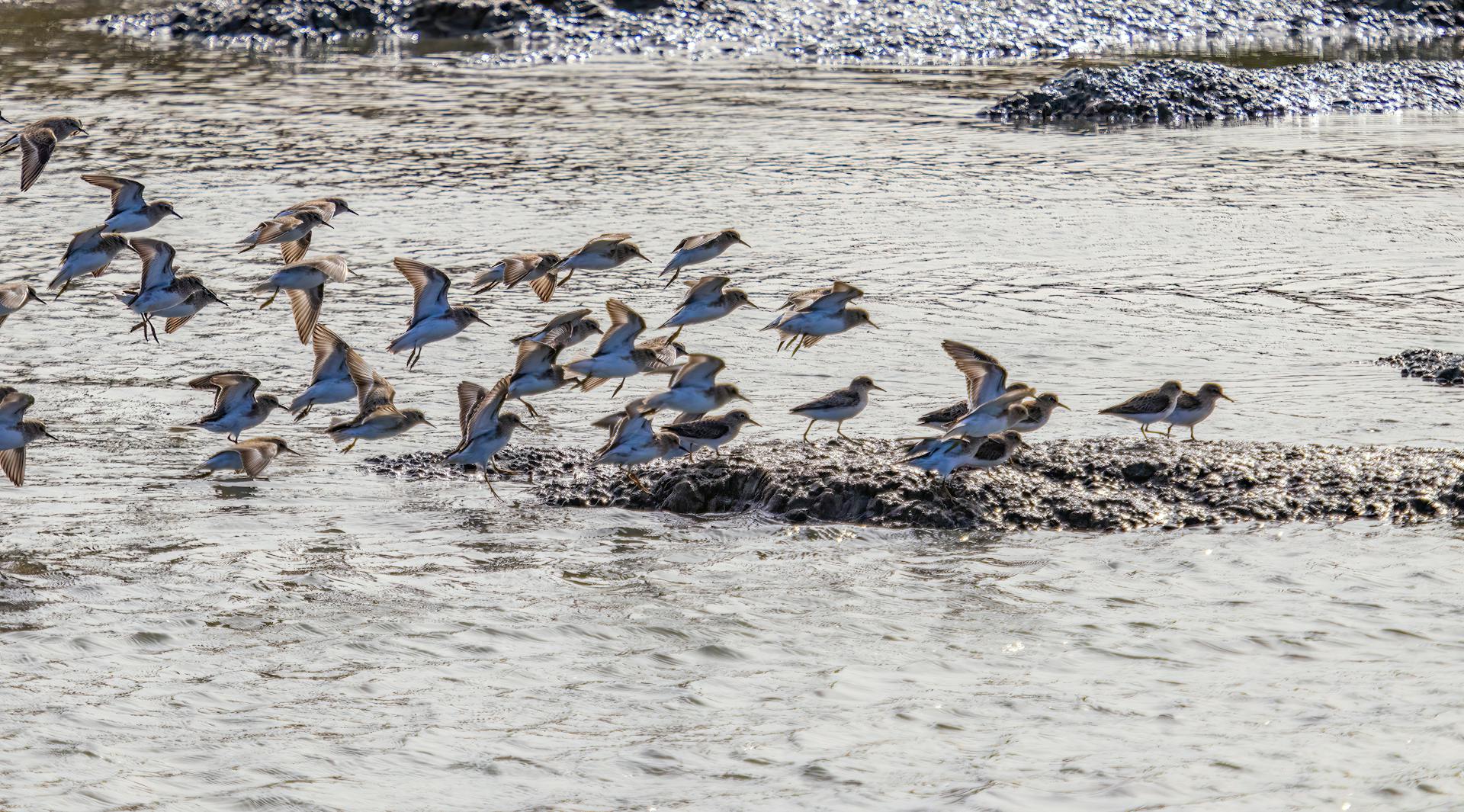
Birds are important. That may seem like a funny question to imagine, but it's true. Birds matter. For as long as humans have been around, birds have been our companions in the natural world. They are always-present possibilities, marking the seasons and moving with unsettling ubiquity. Whether they create art or inspire poetry, birds make an unavoidable impact on our lives.
But why do birds matter? The answer lies deeper than just field marks and molts. Beginning with the skies they've shown us how to soar and dive in a single impossible burst of purpose and inspiration. They are a gift that poses special creatures due to their liberation from the constraint of land walkers - a truly natural miracle that enriches human life.
Why Birds Are Important and Why We Should Care About Them
Birds are important for many reasons. First, they play a crucial role in pest control by eating insects that can damage crops and cause diseases. Additionally, birds help in maintaining habitats by spreading seeds and pollinating plants. Their presence is also an indication of the health of an ecosystem.
Birds are found all over the world, making them a scientific marvel. They are warm-blooded vertebrates defined by their feathers, which provide insulation and reflect light to create beautiful colors for ornamental purposes. Their incredibly light hollow bones make flying possible for birds, while they lay eggs with hard shells and tough bills with ridges inside.
With over 40 species accounted for in the animal world, birds are incredibly intelligent. Certain species like ravens have been known to use tools and mimic sounds like African grey parrots who can learn hundreds of words or phrases. Even blue jays are known to mimic other bird calls! It's clear that birds deserve our attention and care as they contribute so much to the environment around us.
1. Birds are an Important Part of Ecosystems
Birds play an important role in maintaining healthy ecosystems all around the world. A wide variety of birds of different sizes perform essential roles in their respective ecosystems. Smaller birds such as finches and sparrows eat seeds and nuts dropping on the forest floor, which helps prevent overwhelming plants from taking over. Meanwhile, larger birds like African birds of prey eat parasites directly off of grazing cattle, controlling insect populations and rodent numbers.
Additionally, scavengers like vultures clean up dead meat, preventing it from rotting and contaminating water sources. This is crucial because without scavengers, fast-reproducing rodents would thrive on the excess food source, leading to unsustainable levels that could devastate ecosystems. The intricate food chain that involves birds ensures populations stay balanced and prevents any one species from becoming too dominant or endangered. Therefore, it is clear that birds are an integral part of our ecosystem and we must take steps to protect them for future generations.
2. Birds Help Forest Ecosystems by Dispersing Fungi
Birds play an important role in forest ecosystems by dispersing fungi. The black-throated huet-huet, for example, helps to unearth and collect spores from the ground. This is essential because fungi networks form an intricate network beneath the soil that trees rely on to share resources and send distress signals when under insect attack. By spreading fungi throughout the forest, birds provide an important service that ensures trees have access to a diverse supply of nutrients.
This symbiotic relationship between birds and fungi highlights how all parts of an ecosystem work together to support life. Without birds, forests would not be able to maintain their delicate balance and would be more vulnerable to disease and other threats. So next time you see a bird flitting through the trees, remember that they are doing much more than just singing a pretty song - they're also helping to keep our forests healthy and thriving!
3. Birds are Important Pollinators
Birds are underappreciated pollinators that play a crucial role in wildflower reproduction. Flower-visiting birds, such as hummingbirds and sunbirds, can drink nectar while pollen attaches to their bodies. These bright-colored creatures impact the natural world by visiting and allowing plants to reproduce. In tropical regions, birds dive deep into flowers to access sweet nectar and provide study perches for other pollinating birds.
Fruit plants like papaya also rely on pollinating birds for their reproduction. Without these feathered friends, our ecosystems would suffer greatly. So next time you see a bird drinking nectar or perched on a flower, remember how important they are to the environment and take a moment to appreciate their beauty and impact on our world.
4. Birds Spread Nutrients in the Ocean
Birds, specifically seabirds, play a vital role in the ocean's ecosystem. Seabirds eat fish and crustaceans from both open seas and shallow waters. When they return to their nesting sites, they deposit guano (bird droppings) on the rock cliff faces. Guano is an excellent fertilizer that contains essential nutrients for sea-dwelling creatures, coral reefs, and even arctic flora. In large numbers, seabirds can drop 3500 tons of guano annually, which is enough to graze animals or cycle nutrients through the oceans ecosystem.
Despite their challenging habitat, birds are some of the most important animals on our planet. They not only provide beauty and enjoyment for people but also contribute to our environment's health by spreading nutrients in the ocean through their food sources and nesting sites. So next time you see a bird flying high above or resting on a rock cliff face near the ocean, remember how much they do for us without asking for anything in return.
5. Birds Protect Important Habitats Like Wetlands
Birds play a crucial role in protecting important habitats like wetlands, which are home to many different species of wading birds. These wetlands and marshlands are essential breeding grounds for these birds, and they also provide important feeding areas for them. Managing wetland grazing species is essential to maintaining the health of these ecosystems, as they help to keep vegetation in check and prevent the buildup of excess nutrients.
Mudflats due to storm surges are another important habitat that birds help protect. Wetlands like mangroves provide natural flood barriers and water filtration, which can help prevent damage from storms and other natural disasters. Additionally, these habitats are excellent carbon sinks, helping to mitigate the effects of climate change. When left undisturbed, wetlands can build up a dense layer of deep soil that acts as a sponge, absorbing water during floods and slowly releasing it back into the environment over time. Overall, birds are an integral part of these important ecosystems and play a vital role in preserving them for future generations.
6. Birds are Natural Pest Control
Birds are an essential part of our ecosystem, and they play a crucial role in maintaining the balance of nature. Worldwide, birds consume between 400-500 million tons of insects each year, making them natural pest control. In gardens, forests, savannahs, farmland, and towns alike, birds reduce the number of destructive insects that can harm crops and plants. For example, a single barn swallow can eat up to 850 insects per day!
This theme continues with coffee farmers who rely on birds to eat caterpillars that would otherwise destroy their crop. By protecting their crops from pests, farmers can increase their farm profits and reduce the use of harmful pesticides. Birds are not only important for protecting crops but also for controlling other pests like the beet armyworm larvae. In conclusion, birds are an essential part of our ecosystem and contribute significantly to maintaining a healthy environment by functioning as natural pest control agents.
7. Birds Disperse Seeds
Birds play an important role in maintaining ecosystems by dispersing seeds. They help to create new plant growth and maintain biodiversity. Birds eat a variety of food items, and their droppings provide vital nutrients for plants to grow.
Birds' feathers and beaks are adapted to carry plant material, creating nests and aiding in seed dispersal. For example, jays spread up to 4600 acorns over a distance of 2 miles, helping to establish new oak trees. This process helps plants to colonize new areas, creating habitats for other animals. Without birds, many plant species would not survive or thrive, making them a primary food source for many animals in the ecosystem.
8. Birds Contribute to the Happiness of People
Birds are an important part of our natural habitat that brings immense joy to people. Birding, which involves identifying birds, encourages people to get out and enjoy nature, boosting their mood and overall well-being. Liverpool UK is a great example of how birds can bring happiness - the city plays soothing bird songs in public places such as hospitals and even in the children's ward to calm anxious patients.
Connecting with nature through birds has been shown to have a positive impact on mental health. Studies have found that just watching birds can reduce stress levels and increase feelings of relaxation. This is why it's no surprise that many people find birding to be a therapeutic hobby that brings them happiness and peace of mind. Overall, birds contribute significantly to our well-being by giving us a chance to connect with nature and find joy in the world around us.
Frequently Asked Questions
Why are birds important?
Birds are important because they play a crucial role in pollination, pest control, and seed dispersal. Their presence is also an indicator of a healthy ecosystem and they provide enjoyment and inspiration to humans.
Why are birds important to the environment?
Birds play a critical role in maintaining ecological balance and biodiversity by controlling pests, pollinating plants, distributing seeds, and contributing to nutrient cycling. Their presence is a strong indicator of a healthy environment.
What are the benefits of birds?
Birds provide numerous benefits, such as pollinating plants, controlling insect populations, dispersing seeds, and serving as indicators of environmental health. They also bring joy to people through their beauty and song.
Which bird is the smartest bird?
The smartest bird is the African Grey Parrot, known for their ability to mimic human speech and solve complex puzzles.
Featured Images: pexels.com


